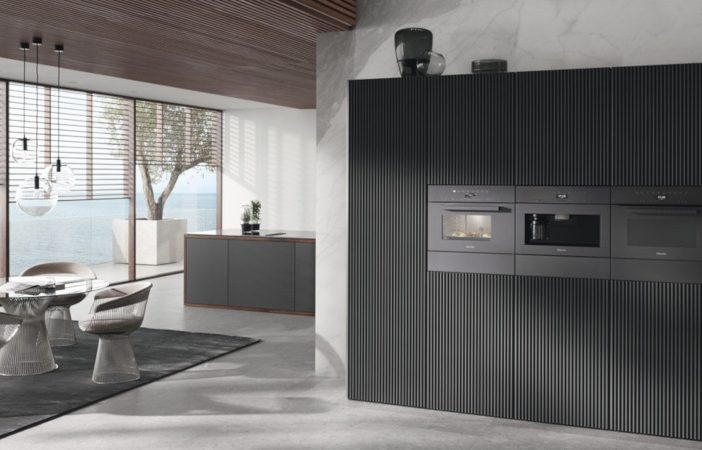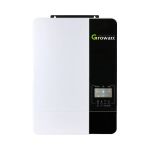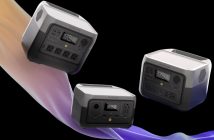Faced with rocketing energy prices and loadshedding – the demand for energy-efficient appliances has skyrocketed. Today, energy-efficient home appliances are not just a nice-to-have, but a home essential. If you need some insight into what to look for when making your decision when shopping for the best price energy-efficient home appliances keep reading for our top tips.
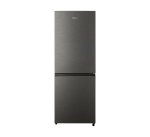
Increasingly more homeowners are opting to change out their appliances for energy-efficient models. “There has been a paradigm shift in the use of solar electricity, says Jon Molyneaux from Miele. “Whereas homeowners in the past opted for solar solutions as a sustainable and money-saving choice, with the ever-worsening load-shedding, it has become more of a residential essential that is required to live a stress-free life.”
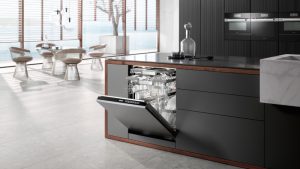
However, in order to make the switch to solar, it is important to make sure that your electrical appliances are as energy efficient as possible so that you do not waste thousands on unnecessary large solar energy systems.
Consider the various costs involved, not just the price tag
When shopping for appliances, it is important to think of two price tags: the first one covers the purchase price, and the second one covers the cost of operating and running the appliance.
While you pay a bit more for the initial purchase of the appliance, if it means that over its lifetime you will be saving money every month on operating costs, the initial capital outlay will be worth it. A supremely energy efficient appliance will also allow you to opt for a much smaller solar system for your home when compared to a home filled with energy-guzzling appliances.
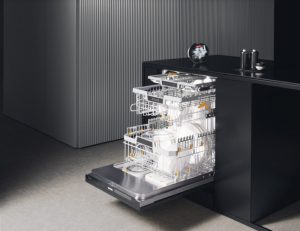
Look at the label
The best way to identify energy-efficient appliances is to look at their energy ratings: The EU energy label, for example, provides information about the energy efficiency of a product. It is very useful, as it can be used to compare various makes and models and see which one comes out on top. The label rates products from dark green (most efficient) to red (least efficient), and it also shows total energy consumption and provides other information relevant to that product, such as water consumption and noise levels. Each label also has a QR code, which can be scanned to offer more information on the appliance in question.
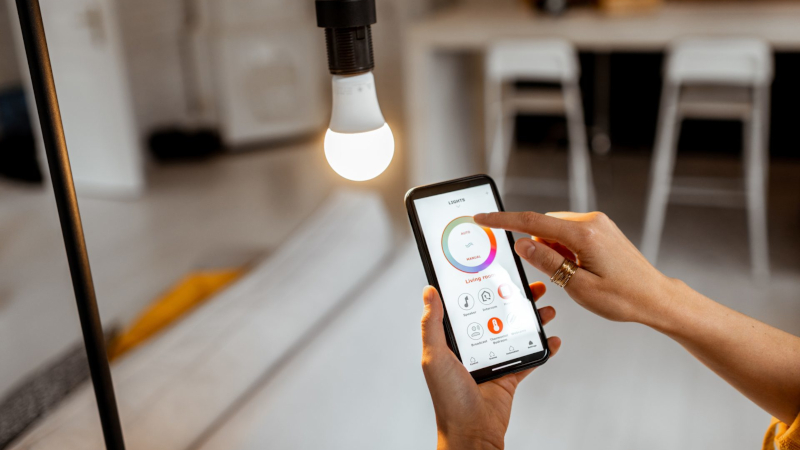
Since 2021, the EU energy rating system was upgraded to be more in line with how appliances have become so much more energy efficient. The new system brings the rating back to a much simpler A – G scale, meaning a product that was previously rated A+++, will now be classified as C or D. This new rating does not mean that the appliances are any less efficient than before – it’s simply the scale that has changed. With the new rating, the A band will remain empty for a while to allow for the future introduction of more energy efficient models.

Choose the right size
It is essential to select an appliance that is the correct size for your needs. A washing machine that is too large, or a dishwasher that runs half empty is far less efficient than a smaller appliance that you can always fill.
For example, Miele has mitigated this problem by ensuring that all its washing machines feature intelligent automatic load control. Miele says this technology analyses the current load and uses no more water and electricity than is necessary to wash that particular load size perfectly. Miele dishwashers also have technology that mitigates this issue. Miele’s SensorDry technology intelligently adapts the programme for excellent and efficient drying results. A sensor checks the load and measures the temperature inside the chamber and the room temperature. The programme is then adapted accordingly, e.g. by modifying the final rinse temperature. The aim is to stop condensation forming on cabinets and to reduce energy consumption and running time without compromising on consistent drying.
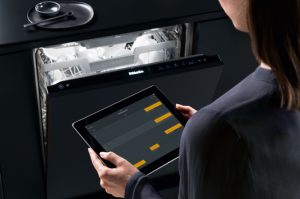
Choose a smart appliance
Smart home appliances can be much more efficient that those that are not connected, as they can be programmed to switch on only when the sun is shining for optimum use of solar power, or during off-peak hours when there is no loadshedding. Most intelligent domestic appliances can be networked conveniently and securely. Operation is simple – whether with the appliance’s linked app, voice control or through integration into existing Smart Home solutions. The appliances are networked via a home WiFi router and are easy to manage.
Eco-friendly usage
Look for eco settings that assist in using your appliance in a more eco-friendly manner. For example, a feedback function that provides precise information about the electricity and water consumption of your appliance, allowing you to use them wisely. This is often faciliated through a linked app, which provides tips on the efficient use of your domestic appliance.
This will prove to be particularly helpful when washing laundry as you will be able to get information on how much water and electricity has actually been used. You can also get information on how often an appliance has been run each week, month or year.

